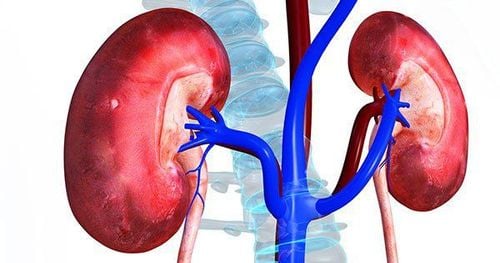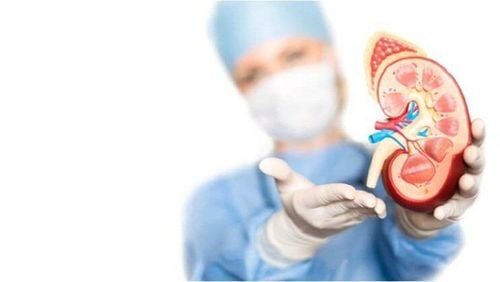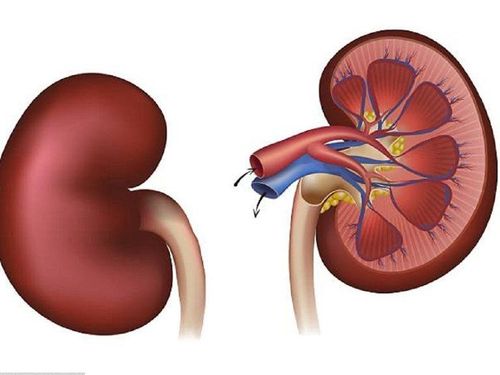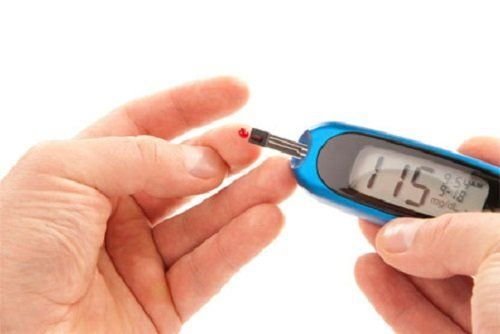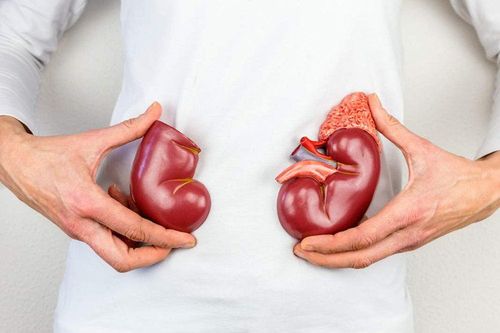This is an automatically translated article.
Management and treatment of kidney failure due to diabetes requires active treatment in many aspects, including: Controlling blood pressure, maintaining stable control of blood sugar and blood lipids, and treating comorbidities that cause the disease. heavier.1. Treatment of hyperglycemia
Studies show that hyperglycemia is one of the main factors that cause diabetic kidney disease to progress.
In the early stages, good blood glucose control will help reduce glomerular hyperfiltration.
At stages 1-3, aggressive blood glucose control helps to reduce the progression of albuminuria, stabilize, and even reverse diabetic nephropathy. The target HbA1c right now is 6.5 -7%.
However, most drugs to treat hyperglycemia are eliminated by the kidneys, so it is necessary to carefully choose or adjust the appropriate dose to avoid the risk of hypoglycemia.

Cần cẩn thận trong chọn thuốc điều trị tăng huyết áp
In stage 4-5 of chronic kidney disease, insulin resistance makes blood glucose difficult to stabilize, often requiring higher insulin doses, but in the late stages, due to decreased insulin degradation in the kidney, in addition, the disease Patients often have anorexia and need lower insulin doses. Careful monitoring is required to avoid episodes of hypoglycaemia.
In end-stage renal disease, insulin may not be needed. In addition, at this stage, patients often have many comorbidities, so the target HbA1c can be around 7.5-8%.
2. Treatment of hypertension
Check blood pressure at every visit and, if possible, measure it regularly at home with a blood pressure goal of < 130/80 mmHg
First-line drugs of choice are renin angiotensin system inhibitors (including angiotensin-converting enzyme inhibitors). ACE inhibitor, Angiotensin II receptor blocker), diuretic, calcium channel blocker. Often patients need a combination of drugs to control blood pressure, if the combination of 3 drugs, 1 drug will be a diuretic. Occasionally, blood pressure can be stabilized with thiazides or loop diuretics.
ACE inhibitors or receptor blockers to help lower blood pressure, control proteinuria, are indicated in left ventricular systolic dysfunction. The combination of an ACE inhibitor and a receptor blocker can further impair renal function and is therefore not generally recommended.

Điều trị và theo dõi huyết áp tích cực cho bệnh nhân suy thận do đái tháo đường
Do not use ACE inhibitors and receptor blockers when women are pregnant or planning to become pregnant, patients tend to become dehydrated, have refractory hyperkalemia, or increase creatinine 0.6 mg/dL after initiation. use medicine.
Beta-blockers can be used in patients with heart failure, coronary artery disease, with caution when patients have bronchial asthma. Calcium channel blockers can cause lower extremity edema and constipation.
Calcium channel blockers, whether dihydropyridine or non-dihydropyridine are beneficial. Non-dihydropyridines protect the kidneys (may reduce proteinuria) but may cause decreased myocardial function.
Preferred drug of choice is the group of inhibitors of the renin angiotensin system, diuretics and calcium channel blockers.
Nutrition and complementary treatment for diabetic kidney failure.
Regarding nutrition, the total amount of calories per day for the patient varies depending on the condition, if the kidney disease has progressed, the patient needs to reduce protein in the diet, about 0.8 -1gram/kg body weight/day to do it. slow progression of kidney disease.
It is also necessary to limit the amount of salt in the diet, about 5-6 grams / day. As kidney disease progresses, it is also necessary to limit phosphorus with phosphate binders and limit potassium.
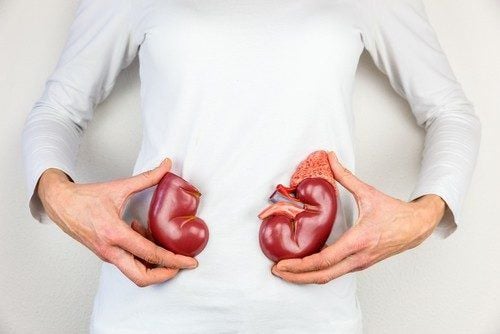
Cũng cần có chế độ dinh dưỡng đặc biệt cho bệnh nhân suy thận
Diabetic nephropathy is often accompanied by increased triglycerides, decreased HDL, LDL may be elevated or normal, statins can be started at low doses and pay attention to rhabdomyolysis complications.
There is no special exercise regimen or exercise restriction in diabetic nephropathy (DM), but when the patient has cardiovascular disease, severe anemia, it is necessary to have a separate exercise regimen according to expert opinion .
3. Long-term management of patients with diabetic renal failure
Regular treatment monitoring is important for good management of diabetic nephropathy. In patients with type 1 diabetes, screening for albuminuria 5 years after diagnosis, in patients with type 2 diabetes, is performed at diagnosis and then continued annually if albuminuria is negative. Test serum creatinine every year to calculate estimated glomerular filtration rate.
Measure your blood pressure at every visit and, if possible, monitor your blood pressure regularly at home. Patients with diabetes and stage 1-2 CKD need to monitor renal function every 6 months. Patients with diabetes and chronic kidney disease stage 3-5 should monitor renal function every 3 months.
Also need additional monitoring: proteinuria, electrolytes (sodium, potassium, chloride, CO2) minerals, bone-related hormones (calcium, phosphorus, PTH), anemia (hemoglobin, blood sugar). erythrocyte count (Hct), serum iron), nutritional status (albumin, BUN).
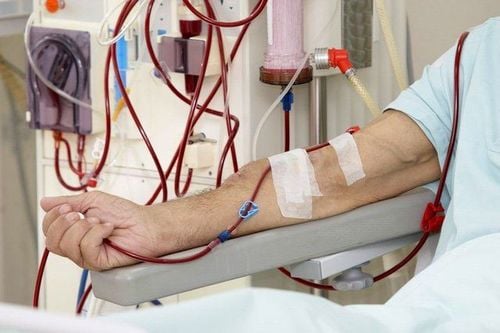
Suy thận giai đoạn cuối cần lọc hoặc ghép thận
End stage kidney failure due to diabetes, patients need to consult a nephrologist when needing dialysis or a kidney transplant. At this time, it is also necessary to avoid causing acute renal failure on the background of chronic renal failure such as coronary angiography with contrast agents, use of nephrotoxic drugs, only maintenance therapy while waiting for dialysis or kidney transplantation.
Besides, it is necessary to combine timely treatment of other complications of diabetes such as diabetic retinopathy, diabetic foot disease, cardiovascular disease....
In the management and treatment of heart failure Diabetic kidney disease, screening for early detection and accurate diagnosis of the condition is very important.
Currently, Vinmec Times City International General Hospital has applied the technique of early kidney failure screening for diabetics by urine test L-FABP according to Japanese technology on modern automatic AU680 testing machine. , for quick and accurate results, effectively supporting the diagnosis and treatment of diseases more effectively.
Please dial HOTLINE for more information or register for an appointment HERE. Download MyVinmec app to make appointments faster and to manage your bookings easily.
Source referenced article: Vietnam Society of Endocrinology and Diabetes




